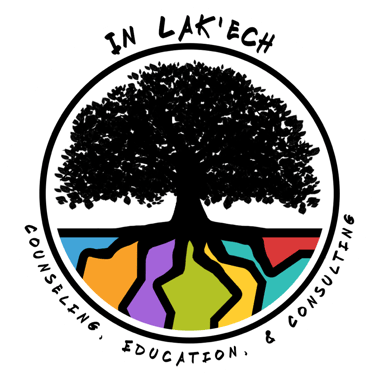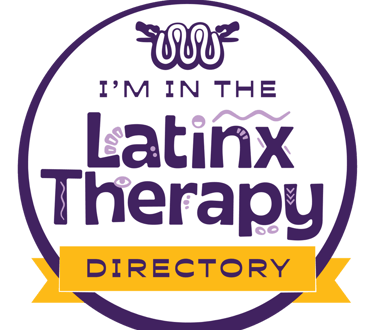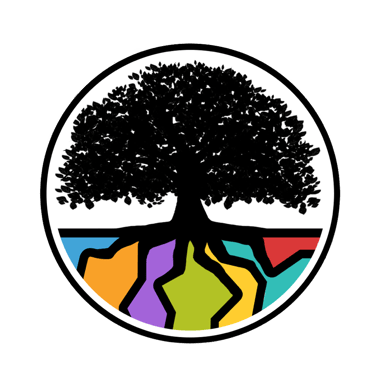
Navigating the Path to Healing: Choosing a Therapist as a Person of Color
In this blog, we explore key factors that BIPOC individuals should consider when selecting a therapist including acknowledging the significance of trauma and culturally responsive care.
BIPOC MENTAL HEALTH
Dr. Bryan O. Rojas-Araúz
7/24/2023


As a person of color, are you interested in looking for a therapist but are not sure where to begin? Do you feel like mental health is not for all people? You are not alone. I also felt this way the first time I looked for a mental health provider. As a person and psychologist of color, I now understand the profound importance of having people who look like you and understand your culture accompany you in your healing. The journey to mental and emotional well-being is a profound and deeply personal one, especially for communities who often face unique challenges and experiences. Choosing a therapist who understands the nuances of trauma and culture is essential to ensure a safe and effective therapeutic process. Our journey to mental and emotional well-being is shaped by unique experiences and challenges that demand authentic and understanding providers. I will explore key factors that all people should consider when selecting a therapist; however, there will be a focus on BIPOC individual experiences acknowledging the significance of trauma and culturally responsive care.
1. The Power of Representation
For Global Majority communities seeking therapy, finding providers from their communities matters. Finding a therapist who shares similar cultural backgrounds or has experience working with individuals from diverse communities can foster a deeper sense of understanding and trust. However, the field of psychology lacks the diverse representation it requires. According to the American Psychological Association, in 2018, about 84% of mental health providers were white and 74% identified as female. Diversity among providers continues to increase but so does the need for more diverse representation. Representation ensures that your therapist can grasp the complexities of your experiences, including microaggressions, systemic inequalities, and historical traumas that may affect your mental health.
Throughout my career, I have witnessed the transformative power of connection in therapy as well as the challenging systems that are not always ready to support communities or providers of color. In my own search for a provider, I have struggled with finding the right fit. I have also seen the power of finding the right match. I vividly recall a young Middle Eastern client who struggled to open up about his experiences of discrimination based on his sexual orientation in his country of origin, and his experiences of racism in the United States. Before our initial session, when he discovered that I was a Latino immigrant man, he asked if there was anyone else available to work with him. He later shared with me that he was worried I would be homophobic or unsafe based on my identities. As we got to know each other, we discovered similarities within our very diverse cultural backgrounds and points of connection in our immigrant experiences. Once this happened, the atmosphere in the therapy room shifted. He felt seen, understood, and embraced. It also allowed him to have a restorative experience by feeling supported by another man of color who was affirming of him as a gay man. We went on to work with each other for two years and I was lucky enough to be part of his story. This encounter reinforced my belief in the importance of therapists who can relate to the unique challenges faced by individuals of color. It also showed me that we don’t have to have identical identities to be effective in supporting BIPOC communities. Finding a therapist who understands your cultural background can increase connection, breaking down barriers that may hinder progress in therapy. It fosters a deeper sense of trust and allows for a more nuanced exploration of your experiences, both positive and negative.
2. Cultural Responsiveness as a Bridge to Healing
Cultural responsiveness is crucial when choosing the right therapist. It refers to the ability of a therapist to understand and navigate the unique cultural factors that shape an individual's beliefs, values, and experiences. A culturally responsive therapist can create a safe and inclusive space, fostering a therapeutic relationship where clients feel heard and validated.
To evaluate a therapist's cultural competence, consider asking questions about their experience working with diverse populations, their training in cultural responsiveness, and how they incorporate cultural considerations into their therapeutic approach.
Being a biracial (Afro-Latino), trinational (Costa Rican-Panamanian-American), who grew up in Costa Rica and the diverse environment that is the Bay Area, California. I developed an acute awareness of the diverse cultural influences that shaped my community. This early exposure taught me what it means to be what Gloria Anzaldua calls a “Neplantero” those of us that live in the borders or that are able to become bridges between different communities. Being a neplantero taught me the significance of cultural responsiveness in life and therapeutic practice. When refugee clients shared their experiences of racial profiling and trauma, I realized the need to approach their healing journey with humility and empathy. This is true for all clients but especially true for those who come from communities who have historically not engaged in services. Learning to respond is culturally appropriate ways can be the difference between a client returning for a second session, sharing available services with their family and friends, or writing off mental health services all together.
Cultural responsiveness involves acknowledging the nuances of cultural identity and its impact on mental health. It encourages therapists to continually educate themselves about various cultural backgrounds and adapt their approach accordingly. It is a lifelong commitment to humility and knowing we can not know everything about all cultures but we are open to learn as much as possible along the way. I have found that being receptive to learning from my clients and their unique perspectives enriches my practice and strengthens our relationship.
3. Trauma-Responsive Care: A Transformative Approach
As people of color, our communities may have a history of enduring trauma due to colonization, slavery, discrimination, or forced migration. Trauma-responsive care is an essential aspect to consider when selecting a therapist, as it involves understanding the potential impact of past experiences on mental health.
A trauma-informed therapist will approach your healing journey with empathy, recognizing the potential triggers and sensitive topics that may arise during sessions. They will create a safe space that emphasizes empowerment and collaboration, fostering resilience and growth.
As an Afro-Latino immigrant, I understand that historical traumas, such as colonization and systemic oppression, continue to reverberate in our communities. One example are the experiences of some immigrant communities who experience trauma before, during, and after migration. These experiences shaped their emotional landscape, and a trauma-responsive approach is essential to navigate their healing process. Additionally, it is important to recognize that there are different types of traumas (e.g. complex, chronic, or racism-based trauma).
The importance of knowledge on racism-based trauma cannot be overstated, especially in the context of mental health support for Global Majority (BIPOC) individuals. Racism-based trauma refers to the psychological and emotional distress caused by experiences of racism, discrimination, and systemic oppression. It can manifest in various ways, including anxiety, depression, feelings of powerlessness, hypervigilance, and a diminished sense of self-worth. We will dive deeper into racism-based trauma in more detail in the future.
Trauma-responsive care involves creating a safe environment that respects a person's autonomy and fosters empowerment. It recognizes the potential impact of past and ongoing traumas on mental health and encourages resilience through the healing process. Incorporating trauma-responsive practices into therapy is not only recommended it is needed in order to be effective when working with marginalized communities.
4. Embracing Intersectionality: An Inclusive Approach
Intersectionality acknowledges that individuals hold multiple layers of identity, which interact and influence one another. A BIPOC individual may face unique challenges based on their race, gender, sexual orientation, disability, or other aspects of identity. It is vital to choose a therapist who understands and respects these various layers of identity to address concerns more effectively. By seeking a therapist who embraces intersectionality, you ensure that your experiences and struggles are validated and holistically supported.
My journey as a psychologist has taught me the significance of intersectionality in therapy. A client's experiences may be influenced not only by their racial background but also by other facets of their identity. On many occasions identities are not additive but instead exponential in the lived experience. For example, I worked with a a young gay Black male who experienced discrimination from family members due to his sexual orientation while also being discriminated against by the LGBTQ community for being a Black male in predominantly white community. Understanding and respecting the intersectionality of my clients' identities have been instrumental in providing holistic and inclusive care. It has allowed me to create a therapeutic space that validates their multifaceted experiences, empowering them to explore and heal without fear of judgment. It also required me to slow down to mindfully identify the identities and concerns most salient to them.
5. Open Communication: The Key to Trust
During the initial sessions, assess how comfortable you feel sharing your experiences and how your therapist responds to your expressions. A therapist who actively listens and validates your emotions can foster a stronger therapeutic alliance. It should be a collaborative space where you feel comfortable enough to provide feedback, disagree with, and challenge your provider.
In my practice, open communication forms the cornerstone of every therapeutic relationship. I strive to be an active and compassionate listener, validating my clients' emotions and experiences. I encourage open dialogues where clients can express their thoughts and feelings. This fosters an atmosphere of trust and collaboration, enabling us to work together towards their healing goals. I always center the relationship over the task.
Open communication is the foundation of any successful therapeutic relationship. It is crucial to find a therapist who encourages you to express your thoughts, feelings, and concerns openly. Therapist need to be humble enough to recognize when they make a mistake by taking ownership and learning from it. Mutual trust and rapport are pivotal for creating a safe space for exploration and healing. Trust is earned; therefore, take your time in deciding who deserves it.
6. Accessibility and Affordability: Overcoming Barriers
Accessibility and affordability are significant barriers that many BIPOC individuals face when seeking therapy. While it is essential to find the right therapist, it is also crucial to consider practical factors, such as location, insurance coverage, and financial resources.
Explore options like community-based organizations, sliding scale fees, or online therapy platforms that might offer more accessible and affordable mental health services. Remember that your well-being is a priority, and there are resources available to help you access quality therapy. Many of us choose to contract with local non-profit organizations or online platforms that make it possible for us to see clients for free or lower-cost services. Many of us also save a few slots on our caseload to provide free or low cost services. It is always okay to ask. If we are unable to meet the request, we might be able to refer you to someone who can.
7. Most Importantly Trust your intuition
In the journey towards healing and well-being, trusting your intuition can be a powerful guiding force, especially for BIPOC individuals navigating the complexities of mental health challenges within their cultural contexts. Intuition is the innate ability to sense and understand our emotions, thoughts, and experiences on a deeper level. It is a voice within us, urging us to pay attention to our needs and make decisions that align with our authentic selves. In the context of BIPOC mental health, trusting your intuition can play a vital role in self-advocacy, seeking appropriate support, and fostering resilience.
As a psychologist of color, I have witnessed the profound impact of trauma and culturally responsive care on the therapeutic process. My lived experiences as a provider and client have reinforced the importance of having services look like you, cultural responsiveness, and intersectionality in providing effective and empowering mental health support for individuals of color. Choosing a therapist who understands your unique experiences and cultural background can make all the difference in your healing journey. Embrace your authentic voice, prioritize your mental health, and remember that there are compassionate and understanding therapists ready to support you on your path to healing and growth. Your well-being matters, and together, we can create a brighter and healthier future for all people. I usually ask my clients to try a provider like they would a pair of shoes, giving them enough of a chance to try them on for fit but not so long that it might leave a blister. It’s okay to let a provider know they might not be a good fit. Just because someone is BIPOC does not mean they will automatically meet all the requirements. So shop around and find the care you deserve. We want you to work with the person who can best serve your individual needs.
Resources:
Financial:
Open Path Psychotherapy Collective – a non-profit dedicated to affordable therapy for $40-$70
The Mental Health Fund - funding for Queer and Trans Black, Indigenous, and People of Color to work with an affirming therapist
Therapy:
Therapist of Color Collective - Collective of BIPOC owned private practices providing free or low cost services in Denver, CO
Inclusive Therapists - "Inclusive Therapists offers a safer, simpler way to find a culturally responsive, LGBTQ+ affirming, social justice-oriented therapist. We center on the needs of Black, Indigenous, and People of Color (BIPOC) and the 2SLGBTQIA+ community. We amplify the voices and expressions of Neurodivergent and Disabled communities.”
Latinx Therapy - a national directory for Latinx therapists in private practice
Therapy for Black Girls – mental health resources and culturally-competent therapist directory focused on the wellbeing of Black women
Therapy for Black Men – mental health resources and directory focused on the wellbeing of Black men
Asians for Mental Health – A directory of AAPI-identifying therapists
Melanin & Mental Health - connects individuals with Black and Latinx therapists committed to serving the mental health needs of our communities.
Therapy for queer people of color - group of psychologists, professional counselors, social workers, and administrative specialists who provide quality mental healthcare exclusively to queer and trans people of color.
My office
1638 Logan St. Unit 4
Denver, CO 80203
Contacts
Services@InLakechCEC.com
720.515.5354


Dr. Bryan O. Rojas-Araúz
Disclaimer:
In Lak'ech CEC does not offer crisis services. If you are experiencing an emergency please call 911 or go to the nearest emergency room.


